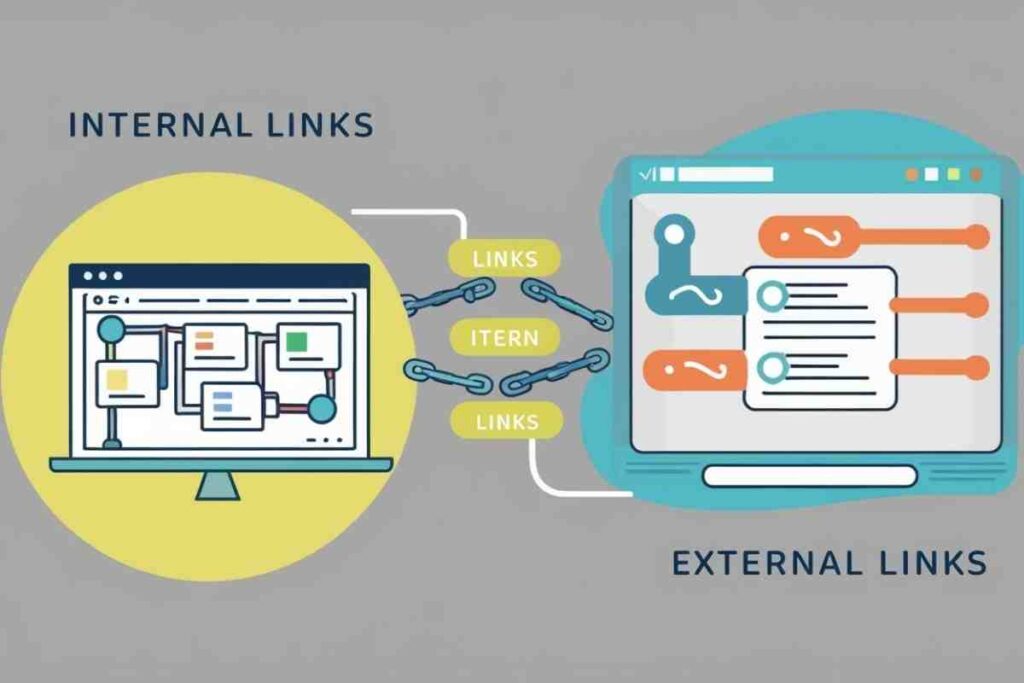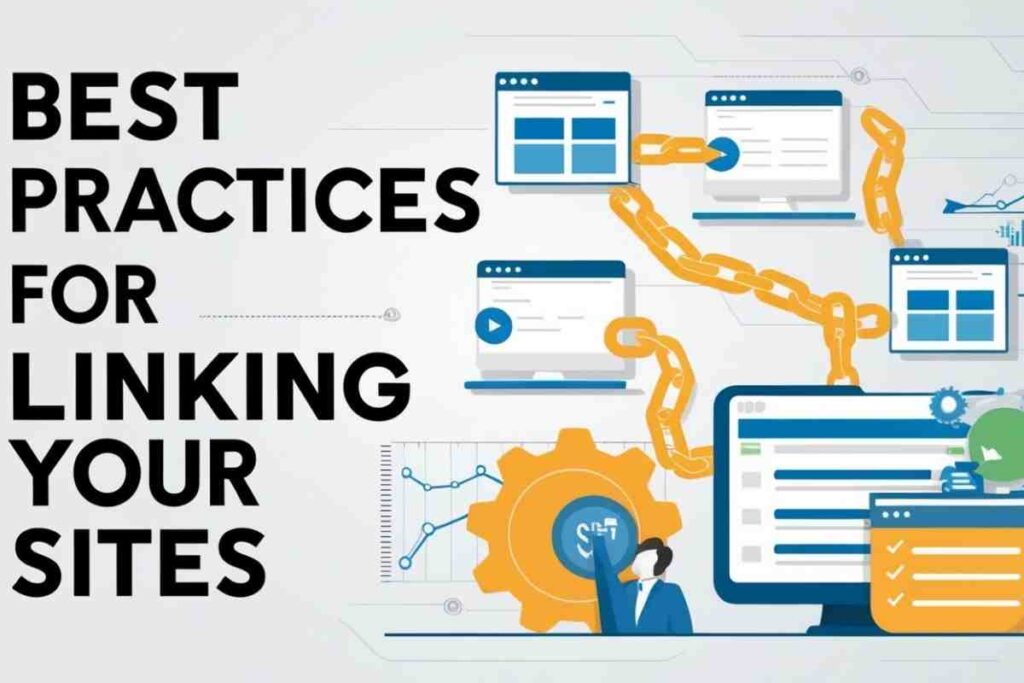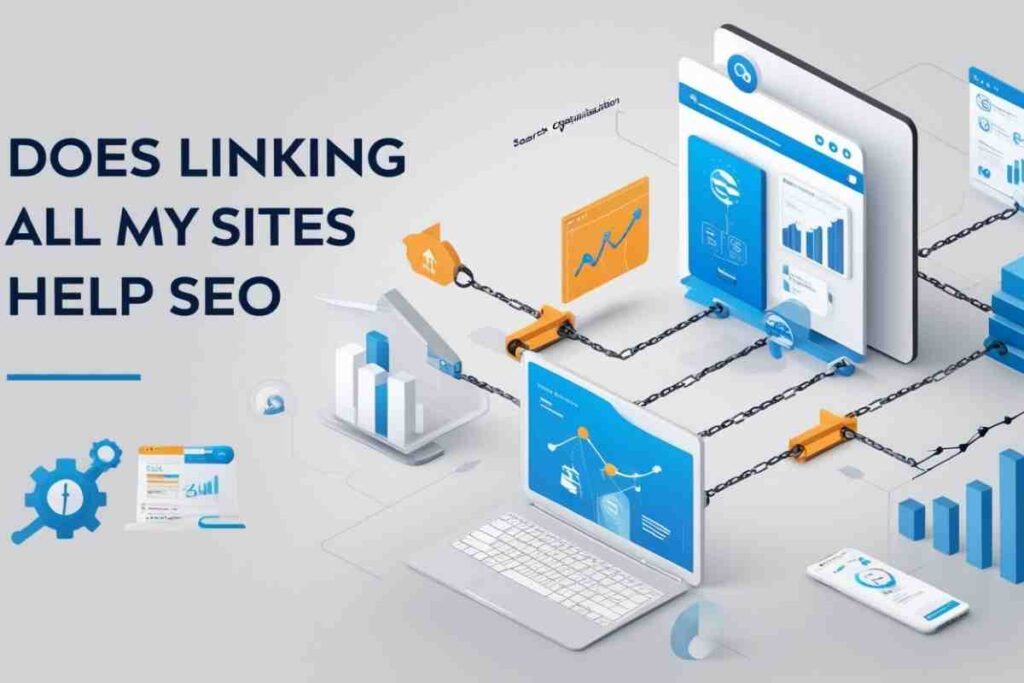When it comes to SEO, building a strong and relevant link structure is essential for ranking higher in search engine results pages (SERPs).
One common question that website owners often ask is: Does linking all my sites help SEO? While linking your own websites can provide benefits, it’s important to approach this strategy thoughtfully.
In this article, we will explore the impact of linking multiple sites on SEO, discuss best practices, and offer actionable insights to help you develop an effective linking strategy that supports your SEO goals.
Understanding the Role of Links in SEO

Links are critical in SEO. They help search engines understand the relationship between web pages and, most importantly, establish a site’s authority and relevance. There are two types of links: internal links and external links. Both play crucial roles in SEO:
External links
These are links from your site to other external websites. Quality external links help build your site’s credibility and relevance, especially when linked to authoritative sites.
Internal links
These are links within your own website that point to other pages on the same site. They help search engines crawl and index your site, distributing link equity throughout your pages.
Does Linking All My Sites Help SEO?
The short answer is: It depends. Linking all your sites together may offer SEO advantages, but it can also lead to potential risks if not done strategically. Let’s dive deeper into both the benefits and risks of linking multiple websites.
Benefits of Linking All Your Sites for SEO
- Improved Site Authority: By linking to other related websites within your network, you can distribute link equity (or “link juice”) across your domains. This can enhance the authority of each site in the eyes of search engines.
- Increased Traffic: Proper internal linking between your sites can drive traffic from one domain to another. If your websites are related in terms of content or niche, this can increase exposure and attract a broader audience.
- Stronger Keyword Rankings: When linking between sites that share relevant keywords or topics, search engines may perceive your websites as more authoritative and relevant in your niche. This can help boost rankings for targeted keywords across multiple sites.
- Better User Experience: Well-placed internal links between sites can enhance user navigation. Visitors who find your sites engaging and helpful are likely to spend more time exploring your content.
Risks and Drawbacks of Linking All Your Sites
While there are benefits to linking your sites, there are also risks you must consider:
- Diluted Link Equity: If you overdo it by linking every page of one site to another, you could end up diluting the link equity (the value that a link passes). Link equity spread too thin can reduce the SEO impact of each individual link.
- Spammy Link Networks: Search engines like Google are sophisticated enough to identify unnatural link patterns. If you create a network of interlinked sites solely for SEO manipulation (such as linking every page to every other page), Google may view this as a spammy tactic, leading to penalties.
- Poor User Experience: Too many links between your sites can overwhelm your users. Excessive linking can create a cluttered, confusing experience, leading to a higher bounce rate and lower user engagement.
- Potential for Duplicate Content Issues: If you link to similar content across multiple sites, this can trigger duplicate content issues. Search engines may penalize websites for having too much similar content across domains.
How to Link Your Sites for Maximum SEO Benefit

To reap the SEO rewards of linking your sites together while avoiding penalties, follow these best practices:
Link to Relevant and High-Quality Pages
Not all links are created equal. Focus on linking to pages that provide real value to users. These should be high-quality pages with relevant content that naturally fits the context of the link.
- Avoid overlinking: Only link to pages that are truly relevant.
- Use internal links strategically: Ensure that the links make sense in the context of your website’s content and serve the user’s needs.
Focus on Link Quality, Not Quantity
It’s better to have a few high-quality internal links rather than many low-quality ones. For instance, linking from a well-established authority page to another page with good content can transfer more link equity than linking from a less authoritative page.
- Use descriptive anchor text: Your anchor text should be natural and relevant to the target page. Over-optimized or repetitive anchor text can look suspicious to search engines.
Diversify Your Link Strategy
Don’t limit yourself to internal linking alone. Build natural backlinks from reputable third-party sites, such as industry-related blogs, news outlets, or academic resources. A balanced mix of internal and external links can enhance your site’s credibility.
Monitor Link Performance
Track the performance of your links using tools like Google Analytics, Google Search Console, Ahrefs, or SEMrush. You should regularly check if your internal links are driving traffic and whether your rankings are improving.
Use the insights gained to optimize your linking strategy further.
How Many Links Should You Have Between Your Sites?
The number of links between your sites is not a one-size-fits-all approach. It depends on your content, niche, and overall SEO goals. However, here’s a general guideline:
| Site Structure | Recommended Number of Links | Best Practice |
|---|---|---|
| Small Site Network | 2-5 internal links per page | Keep it relevant and natural |
| Medium Site Network | 5-10 internal links per page | Focus on important pages, not all pages |
| Large Site Network | 10-15 internal links per page | Prioritize most valuable pages first |
Ensure the links are user-centric and helpful to the content’s context.
Best Practices for Linking Your Sites

To build a successful SEO strategy through interlinking, follow these practices:
Establish Clear Site Hierarchy
Organize your websites in a way that makes sense. Each site should have a logical hierarchy with clearly defined categories and subcategories. This helps search engines understand the structure of your site and index it more effectively.
Use NoFollow for Paid Links
If you’re linking between your sites for promotional purposes (e.g., paid links), use the rel=”nofollow” attribute to prevent passing link equity. This will prevent search engines from counting these links toward your SEO efforts.
Ensure Mobile-Friendly Links
With mobile-first indexing, make sure that the links between your sites are functional and easy to navigate on mobile devices. Poor mobile usability can negatively affect your SEO rankings.
Key Takeaways: Does Linking All My Sites Help SEO?
- Linking all your sites can help SEO, but only if done strategically. Too many internal links or linking from low-quality pages can harm your website’s SEO and user experience.
- Focus on quality, relevance, and natural link placement. Over-optimization can lead to penalties from search engines.
- Monitor and evaluate your linking strategy over time using analytics tools, and adjust based on performance data.
- Build a balanced link profile, combining both internal links between your own sites and high-quality external backlinks.
By following these guidelines and focusing on providing real value to users, you can create a robust linking strategy that improves your SEO performance while maintaining a good reputation with search engines.
Conclusion
So, does linking all my sites help SEO? Yes, but only when done carefully and strategically. To succeed, focus on relevance, quality, and user experience when linking between your websites.
Avoid overusing links or creating a link network purely for SEO manipulation. By implementing the best practices shared in this guide, you can enhance your SEO rankings, drive traffic, and build a sustainable online presence.
With proper attention to detail, your interlinking strategy will not only help SEO but will also foster a better user experience and promote long-term growth for your sites.
FAQs
Does linking all my sites help SEO?
Linking all your sites can improve SEO if done strategically. It can create a strong internal network, but excessive linking may dilute link equity.
Can internal linking improve my website’s SEO?
Yes, internal linking helps search engines discover content on your site, improving crawlability and boosting rankings for specific pages.
Is it bad to link to low-quality websites?
Yes, linking to low-quality websites can harm your SEO, as it may signal spammy or manipulative practices to search engines.
How many external links should I include in my content?
It’s important to keep external links to a minimum. Only link to high-quality, relevant websites to maintain credibility and avoid penalties.
Does excessive external linking hurt my site’s ranking?
Yes, too many external links can spread link equity too thin and make your website appear spammy, potentially harming your SEO.
What is link equity and why is it important for SEO?
Link equity refers to the value passed through links. High-quality links can boost rankings, while low-quality ones can harm your site’s authority.
Can I control which websites link to my site?
While you can’t fully control which websites link to your site, you can build high-quality backlinks through outreach and content promotion.
How can I track the effectiveness of my external linking strategy?
Use tools like Google Analytics and Ahrefs to track referral traffic, backlink profile, and overall SEO performance related to external links.



